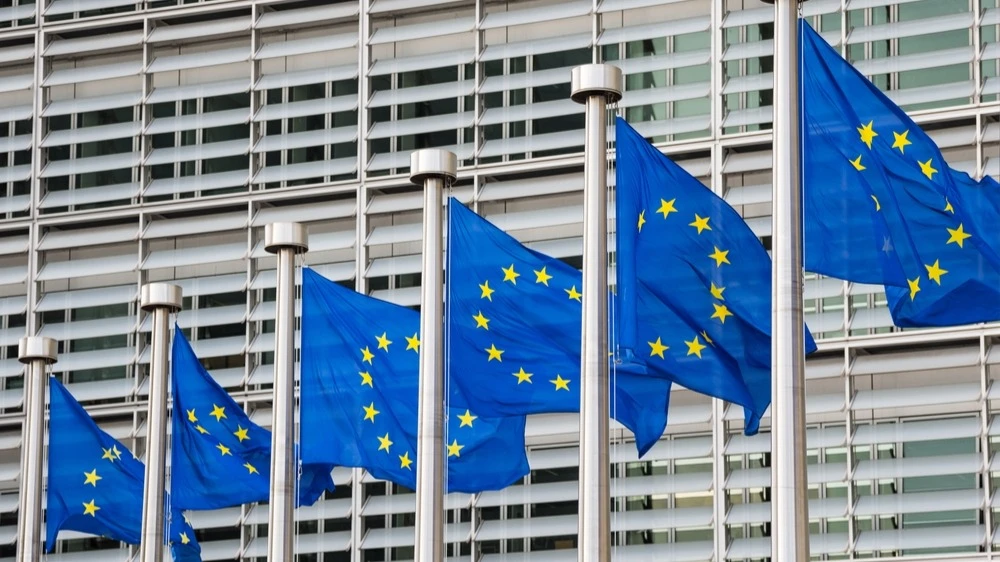Shares of EU oil and gas giants were among the growth leaders. What is driving the market?
Oil prices could fall below $60 a barrel before the end of the year, some analysts suggest

Shares of European oil and gas companies were among the leaders in terms of growth rates at the auction on Monday, September 8. Securities rose in price in parallel with oil quotations, which added more than 2%. On the one hand, investors were not upset by the OPEC+ decision to increase production, on the other hand, they were concerned about the news about possible new sanctions against Russia's oil exports.
Details
Quotes of British oil company BP in London added at the moment by 1.8%, and on the premarket in the U.S. - 0.8%. Shell securities grew by 1.37% in London and 0.9% in New York. France's TotalEnergies was up 1.6% in Paris and 0.3% on the New York Stock Exchange. Spanish Repsol was growing in Madrid by 1.7%, quotes of Eni in Milan grew by 1%, in the U.S. - by 1.4% on the premarket.
Quotes of American Chevron and ExxonMobil were up 0.6% in morning trading on Monday.
Oil and gas companies became more expensive in parallel with the growth of oil prices. The cost of contracts for delivery of Brent crude oil with execution in November rose by more than 2% - exceeded $67 per barrel, follows from the data of the Intercontinental Exchange.
What's the matter
The rise in the cost of oil at the beginning of the week can be explained by two factors: the market perceived the next increase in crude production by OPEC+ as moderate, and spurred demand fears of new EU sanctions against Russia, according to Reuters.
OPEC+, led by Saudi Arabia and Russia, over the weekend decided to increase oil production by 137,000 bpd from October. The cartel has been consistently increasing crude production since April in order to support the market. At the same time, the quota increase was more modest than it was in the summer months and in September (411,000 bpd in June and July, 555,000 bpd in August and September), Reuters reported.
"The market has gotten ahead of itself in terms of this OPEC+ [production] increase. Today we are seeing the classic 'sell on rumors, buy on facts' reaction," said Ole Hansen, head of natural resources strategy at Saxo Bank, as quoted by Reuters.
In addition, Bloomberg sources reported on Monday that the new - already 19th - package of EU sanctions against Russia may further restrict oil trade. According to Bloomberg sources, several Russian energy companies and banks may fall under the new EU restrictions. In addition, the package provides for sanctions against the Russian "shadow fleet" of tankers, oil traders in third countries, as well as Brussels may impose a ban on reinsurance of under-sanctioned tankers, the agency's sources say. The EU may also toughen sanctions against major Russian oil companies, revoking existing exemptions for some of them. According to the sources, the EU expects to coordinate some of the new steps with the US: a delegation of European officials will travel to Washington this week to discuss joint actions.
Context
Last July's 18th EU package did little to move oil prices: Brent remained around $69 a barrel as the market did not expect a noticeable reduction in supply, Reuters reported at the time. European oil and gas stocks rose 0.6% on the day the package was approved.
With the current OPEC+ production trajectory and inventory dynamics, oil prices could fall below $60 a barrel by the end of this year and in the first quarter of next year down to the $54-56 a barrel (mid-$50s) area, Feredun Fesharaki, chairman emeritus of consulting firm FGE NexantECA, warned on Bloomberg Television. But "until we see real inventory growth, there will be no impact on prices," he added.
This article was AI-translated and verified by a human editor
